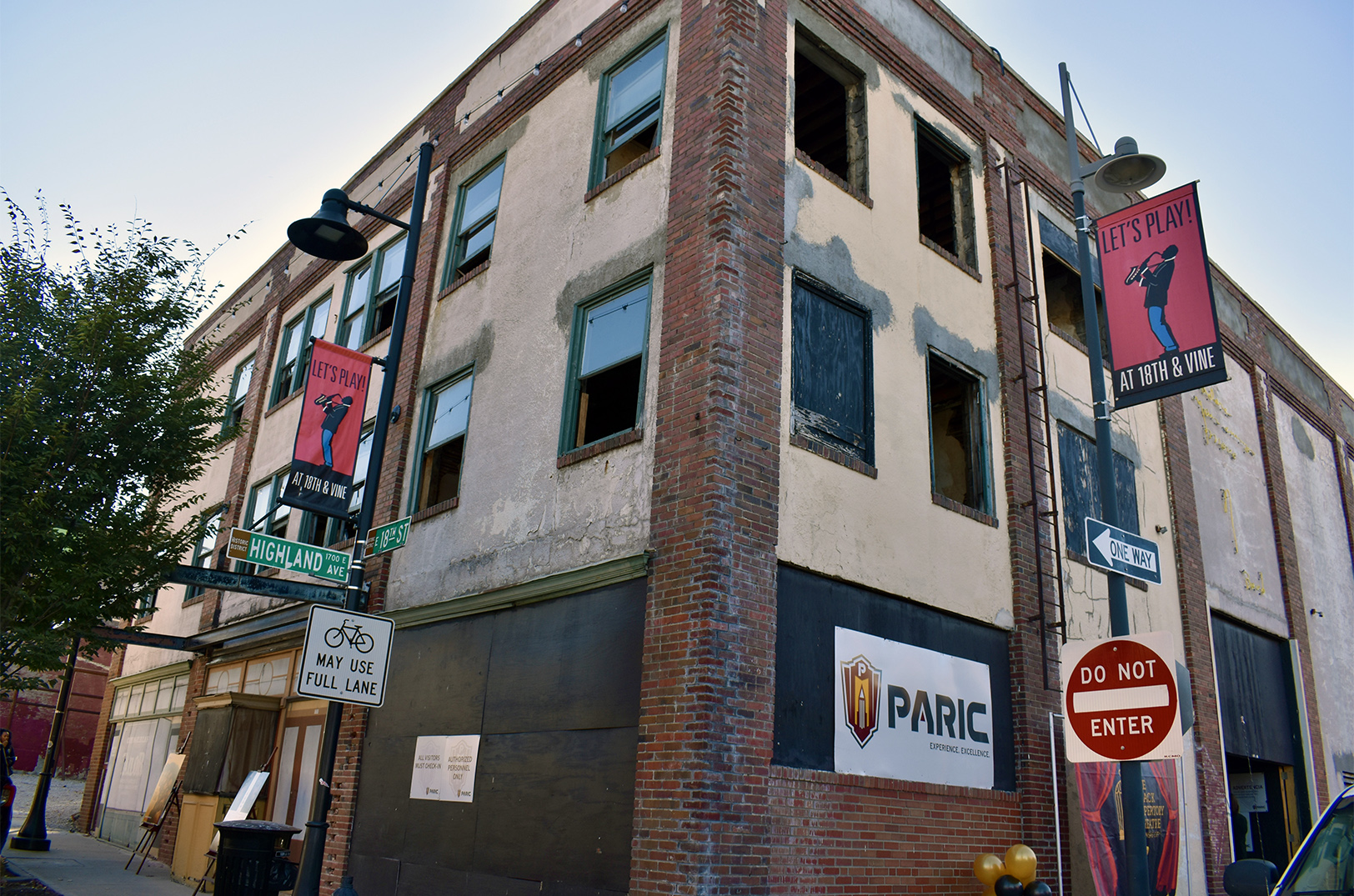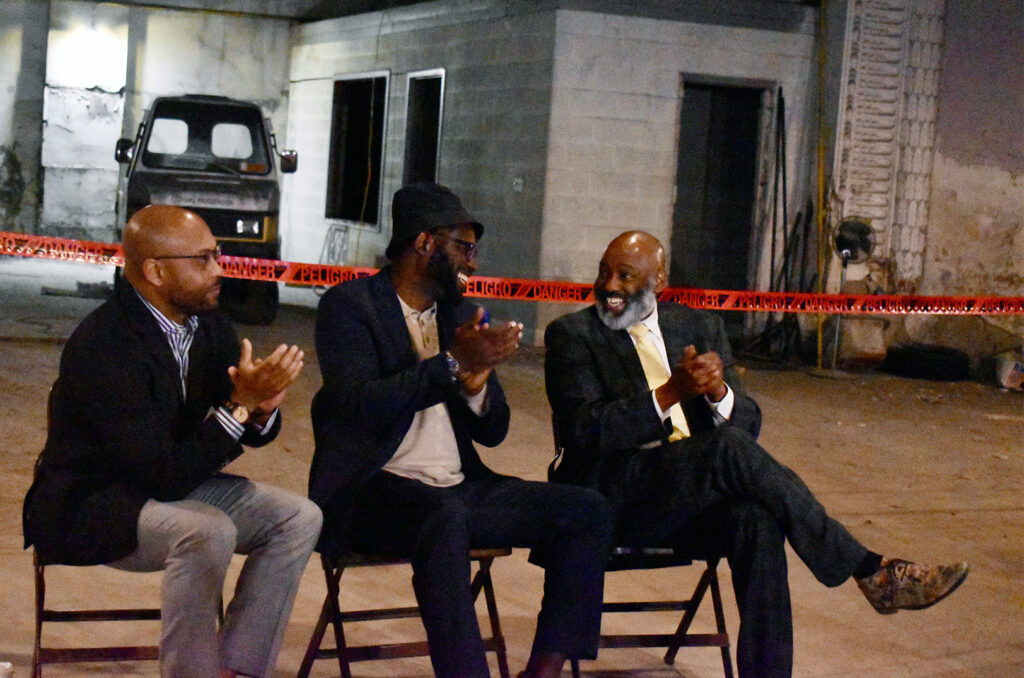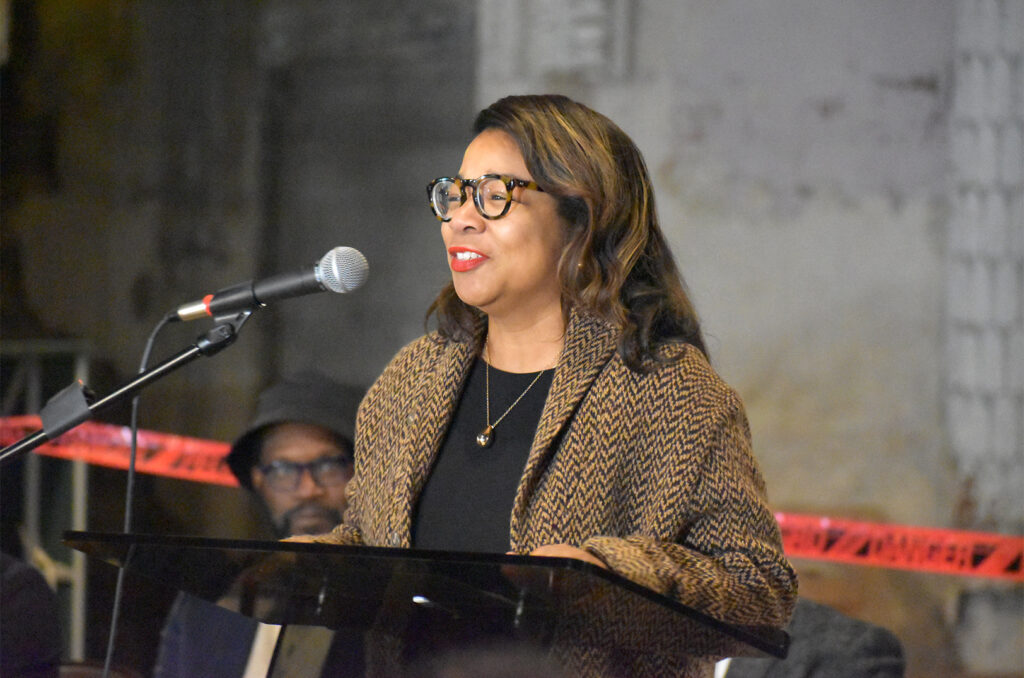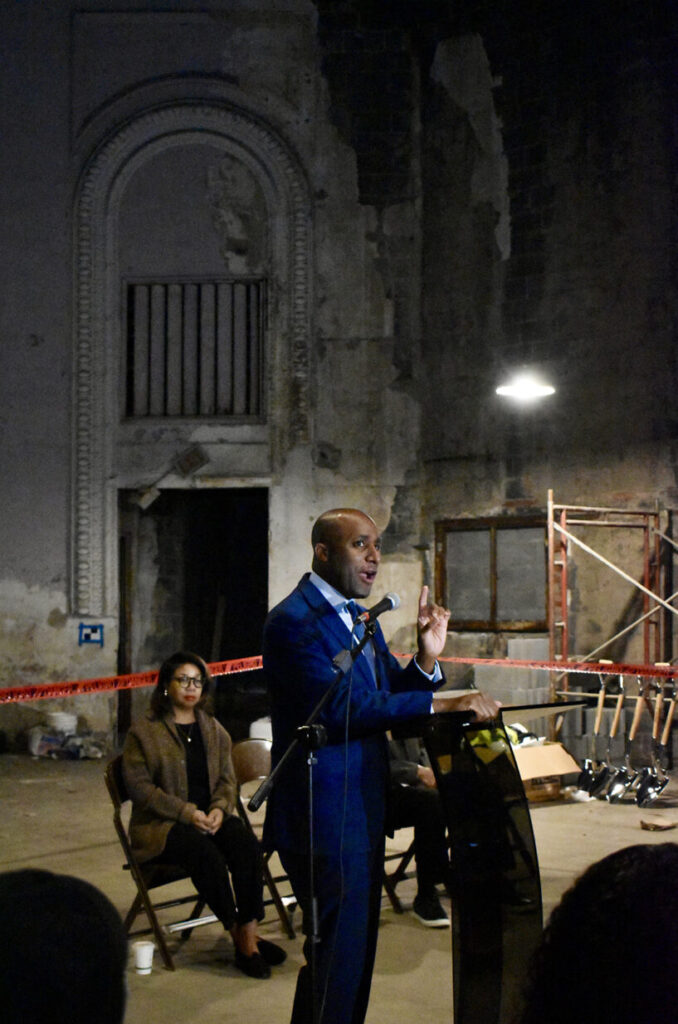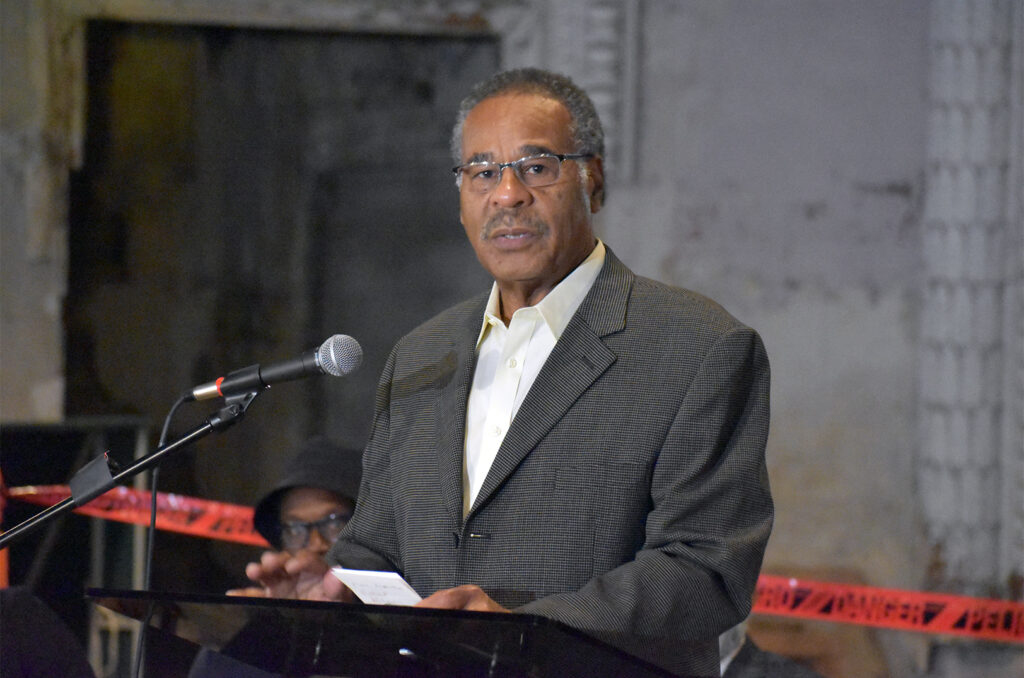A century after the storied structure’s construction, an $8.7 million redevelopment project at the Boone Theater in Kansas City’s historic 18th & Vine Jazz District aims to recapture the space’s potential as a cultural hub for the community — and a bridge to the city’s history.
The long-awaited project at 1701 E. 18th St. is expected to transform the 1924 theater — intentionally amplifying the legacy of Kansas City’s Black arts, music, and film, leaders of the project said at a recent groundbreaking event.
“We are excited to begin construction on this signature project and look forward to the wide-spread impact it will bring to the 18th & Vine district,” said Tim Duggan, founder of urban planning and design firm Phronesis, one of the developers within the Vine Street Collaborative team behind the project.
The development group is behind a slew of recent historic renovations in the area, including 2000 Vine, which houses Vine Street Brewing, Missouri’s first Black-owned brewery.
Click here to learn more about the Boone Theater, which was named for John “Blind” Boone, a Black pianist born in Missouri during the U.S. Civil War to a former slave and a Union soldier.
A revival with deep roots
Once renovated, the Boone Theater — located across from the Gem Theater and the American Jazz Museum — is set to house the Black Movie Hall of Fame, the Black Repertory Theatre of Kansas City, and modern office suites, creating a cultural and historical hub in the heart of the district.
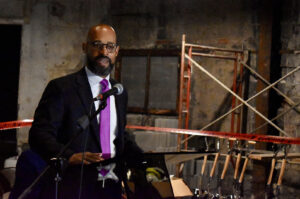
Jason Parson, CEO of Parson + Associates, speaks during a groundbreaking event at the Boone Theater; photo by Nikki Overfelt Chifalu, Startland News
Jason Parson, CEO of Parson + Associates, highlighted the significance of revitalizing the area.
“By investing in projects like the Boone Theater, we are not only preserving history, we are also injecting energy and momentum into 18th & Vine’s future,” he said. “The team has been extremely intentional in highlighting this cultural corridor and will continue to do so.”
A $2 million investment into the redevelopment project was made possible through innovative financing and incentives secured at the city, state, and federal levels. Missouri Sen. Barbara Washington, D-Kansas City’s collaboration with the Community Investment Trust was crucial in funding the non-profit Boone Theater Community Investment Group, which will manage the theater.

Shomari Benton, co-founder of the Vine Street Collaborative, speaks during a groundbreaking event at the Boone Theater; photo by Taylor Wilmore, Startland News
The theater’s role in the district will be transformative, said Shomari Benton, co-founder of the Vine Street Collaborative, LLC.
“When you think about this district, it represents the absolute best of Kansas City, not just the third district but the entire city,” he said. “This is more than just a redevelopment project; it’s about breathing life into a cultural corridor that has been a beacon for Black history and creativity for generations.”
Check out more photos from the Boone Theater groundbreaking event, then keep reading.
A future centered on Black arts
This revitalization effort also promises to bring the district’s artistic future into focus, said Rodney Thompson, who will oversee the Black Movie Hall of Fame.
“Kansas City is more connected to Hollywood than people think,” said Thompson, noting the city’s ties to filmmakers like Kevin Willmott, Don Cheadle, and Gordon Parks. “We’re creating something unique here, combining history with innovation, and making the 18th & Vine district the center of Black culture in America.”
For the Black Repertory Theatre of Kansas City, the Boone Theater offers a new home to expand its programming.
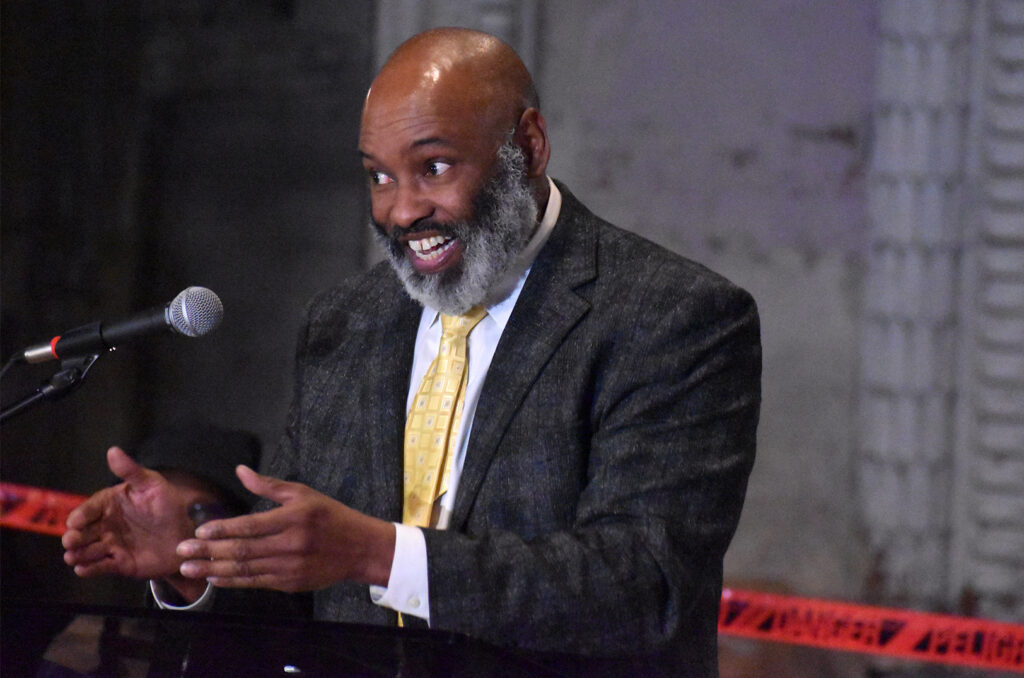
Damron Russel Armstrong, founder of the Black Repertory Theatre, speaks during a groundbreaking event at the Boone Theater; photo by Taylor Wilmore, Startland News
“The addition of this space to our district is monumental,” said Damron Russel Armstrong, founder of the Black Repertory Theatre. “Partnerships are at the heart of theater, and with the Boone Theater, we’ll have the opportunity to grow and connect even more deeply with the community.”
The redevelopment is expected to last 12 to 18 months, with construction starting earlier this week.
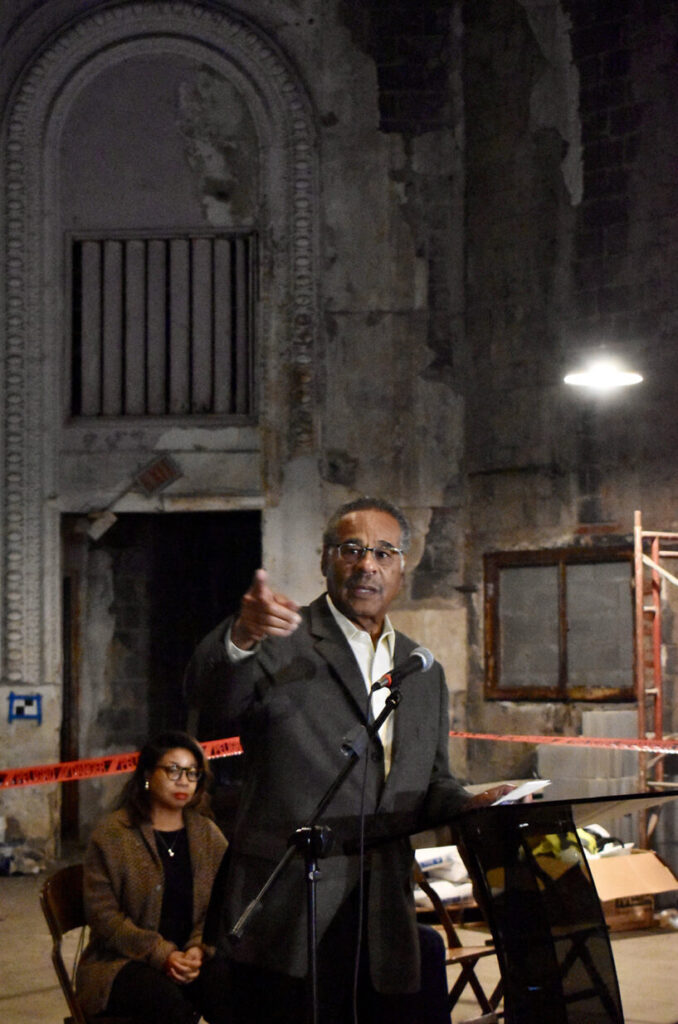
U.S. Rep. Emanuel Cleaver II, D-Missouri, speaks during a groundbreaking event at the Boone Theater; photo by Nikki Overfelt Chifalu, Startland News
U.S. Rep. Emanuel Cleaver II, D-Missouri, who spoke at the recent groundbreaking event, believes the project will leave a monumental impact on the city, he said.
“Projects like these build bridges — not just physical ones, but bridges of culture, history, and community,” said Cleaver. “And that’s the legacy we want to leave here in Kansas City.”




